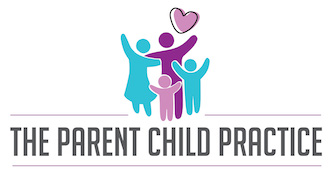There’s a reason why there are thousands of children’s books available across the world, with new titles getting penned all the time. It’s not just that there are endless stories to tell, it’s that the benefits of reading with your children—especially at a young age—are huge!
Supporting a Child with ADHD: 5 Tips for Parents
Exploring Three Alternative Education Approaches to Traditional Learning
Not every child learns the same way. Some children are more hands-on and others are visual learners. Finally, some children need more individual attention than others.
In thinking about all of the factors that play into learning, it makes it pretty easy to understand why different approaches could help children more than one “standard” learning style.
Explaining Your Child’s Learning Disability to Others – 4 Relevant Aspects
It is not unusual after having shared with a caregiver or caregivers that their child has a learning disability that a caregiver will ask me, “What do we tell others about my child’s learning disability? or “Should we tell people that they have a learning disability?”
You may feel like you are having a difficult time wrapping your mind around the idea that your child has a learning difference and, therefore, you are reluctant to share that information with others, including family. You may wonder if they will understand what you are explaining to them or whether that person unknowingly or knowingly will make things worse for your child or make them feel ostracized.
Suspecting You Have ADHD? – The Importance of Getting a Psychological Evaluation as an Adult
Have you ever suspected that you might have ADHD, even as an adult? You are not alone. There are a high percentage of adults that remain undiagnosed and/or untreated and this is likely because the increased level of awareness and improved access to providers for ADHD has only occurred in the more recent years.
What works? Instructional Strategies for Children with Dyslexia: Part Three
In this third and final three part series blog post on Dyslexia, I will share information about effective instruction and intervention for working with children with Dyslexia. It is very common that as my evaluation process comes to an end that parents will ask me, “What is next now that we have a diagnosis?” The “what’s next” is the most important thing that a parent can do for their child and it is even more important than the diagnosis that they receive from me. If a child is diagnosed with Dyslexia but does not receive appropriate instruction and intervention then they will not make adequate progress and will continue to struggle.
Dyslexia Evaluations (Psychoeducational Assessments): Part Two
In my previous blog post I shared information about Dyslexia so that readers could have a better understanding about what it is, what causes it, and spot the possible red flags for identifying it. At the conclusion of that blog post, I recommended that if you suspected your child or yourself has Dyslexia that you would want to seek out a comprehensive psychoeducational assessment. Therefore in this second blog post of my three part series on Dyslexia, I will share information about psychoeducational assessments. The goal of this post is to demystify the process, explain the components, and ultimately help the reader better advocate for themselves or their child(ren) and discriminate high quality from low quality evaluations.
Understanding Dyslexia: Part One
Approximately once per week I receive a call from a parent, college student, or adult wanting to understand more about Dyslexia. There are many articles on the internet, numerous conversations on listservs, and a lot of individuals who are ready to disseminate information to others based on their own personal experience or readings about Dyslexia. Some of this information is accurate and some of this information is completely inaccurate. Consequently, when parents call me, I sometimes ask what they already know about Dyslexia. In addition to scheduling families for evaluations, my goal is to educate and empower families with information that is accurate. Therefore, in today’s blog post I am going to reveal my responses to commonly asked questions that families have for me about Dyslexia. I will also share a second blog post about possible components of a Dyslexia evaluation and recommended instructional strategies for children identified with Dyslexia.
What will happen during a Psychoeducational/Learning Disabilities Evaluation?
As a clinician trained in School Psychology, I receive numerous phone calls from parents or adults interested in psychoeducational testing (learning disabilities testing). In fact, this is a great deal of the types of calls that I receive because of my professional background and training. During my conversations with callers, I am often asked, “What happens during testing?” This is an extremely common question for me and I get it. People feel a lot of anxiety when they don’t know what to expect. Therefore, I am always glad to answer that question. I hope that by writing this blog post I can answer this commonly asked question for anyone looking for information about what is involved in psychoeducational/learning disabilities testing.
How Individuals with Disabilities Are Losing Their Accommodations for High Stakes Graduate School Testing
There has been an upsurge in requests for testing accommodations and, as a result, testing agencies have had to establish clear procedures to address the ever-increasing volume of requests. The testing agencies are required to individually assess the disability documentation to determine the appropriateness of the accommodation requests. When disability documentation is insufficient or does not make a compelling case for why accommodations are still needed, then individuals will find that they no longer qualify for testing accommodations despite their previous diagnosis of a disability such as ADHD, dyslexia, etc.



